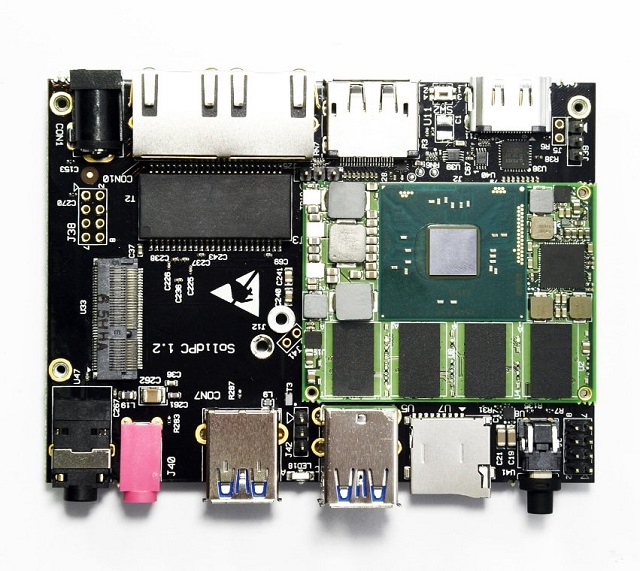
SolidRun x86 Braswell MicroSoM runs Linux and full Windows 10, destroys Raspberry Pi
The Raspberry Pi is popular for three major reasons -- it is small, inexpensive, and doesn't consume a lot of electricity. This makes the board very popular for things like education, servers, IoT projects, and media playback. Unfortunately, as many consumers find out quickly, the Raspberry Pi computers are woefully underpowered for some needs. In other words, despite the low cost, it isn't necessarily a bargain.
Today, SolidRun announces an Intel Braswell-based MicroSoM. Unlike the ARM-powered Raspberry Pi, this is x86 compatible, meaning it can run full Windows 10. Plus, if you install a Linux distro, there will be far more packages available, such as Google Chrome, which is not available for Pi. Heck, it can probably serve as a respectable desktop. Even though it costs more than the Raspberry Pi, is it a better deal?
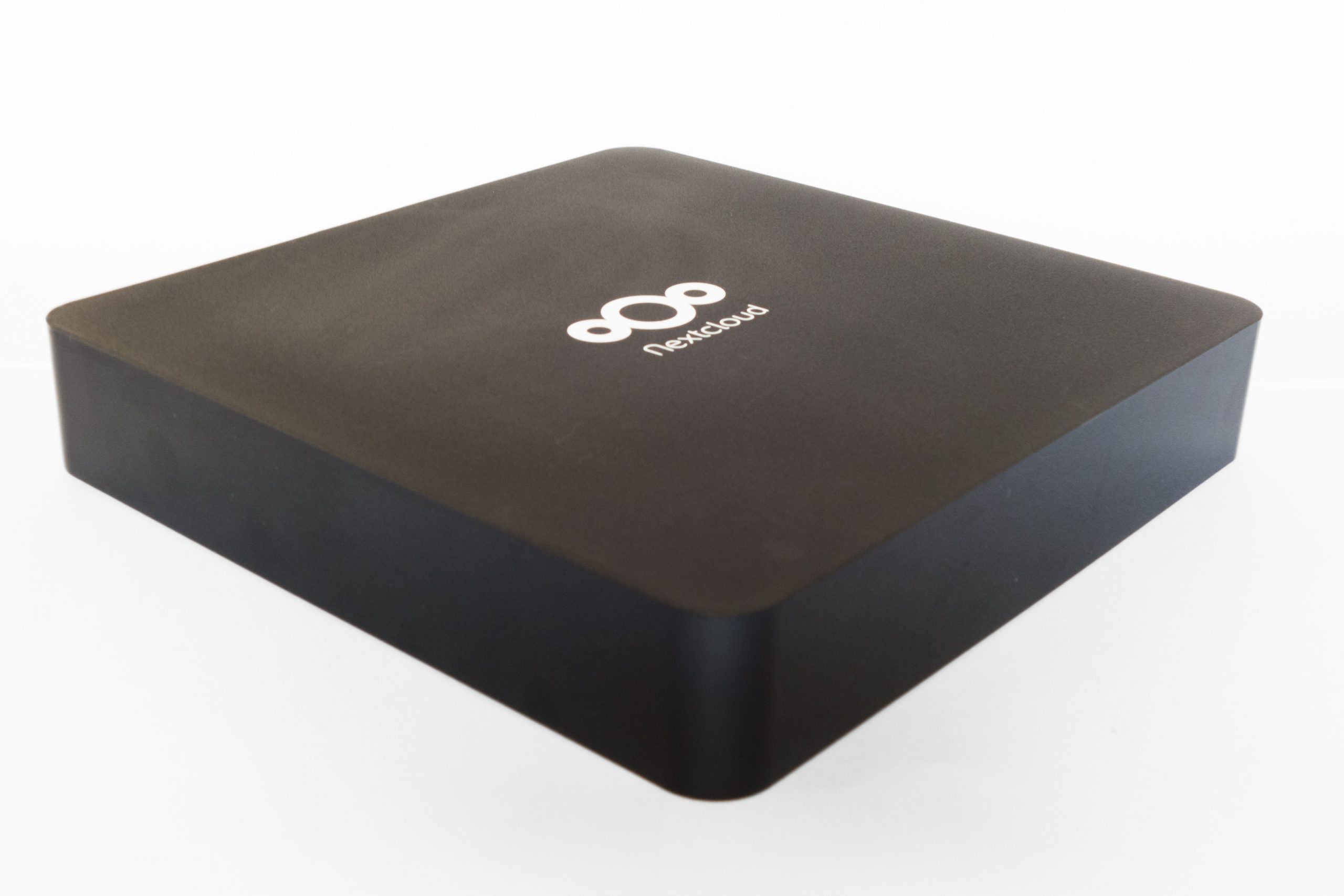
Canonical and Western Digital launch Ubuntu Linux 'Nextcloud Box' powered by Raspberry Pi
Cloud storage is amazingly convenient. Unfortunately, the best part of the cloud can also be the worst. You see, having your files stored on someone else's severs and accessing them over the internet opens you to focused hacking, and potentially, incompetence by the cloud storage company too. As a way to have the best of both worlds, some folks will set up net-connected local storage so they can manage their own 'cloud'.
Today, Canonical and Western Digital (WDLabs) unveil an Ubuntu Core Linux-based cloud storage and 'Internet of Things' device called 'Nextcloud Box'. The box leverages the open source Nextcloud service and can be powered by a Raspberry Pi 2, Raspberry Pi 3, or oDroid C2. Will it be easier to use and manage than closed source solutions?
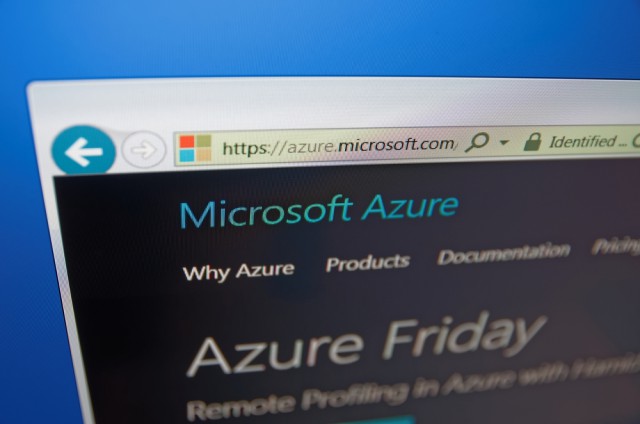
Microsoft Azure Service Fabric coming to Linux
Microsoft has announced that it will be bringing Azure Service Fabric, which allows developers to run and manage microservices, to Linux.
Azure's CTO Mark Russinovich is very enthusiastic about microservices, which the company has been using internally for seven years. Russinovich believes that the vast majority of apps even including enterprise apps will soon be built using this technology.
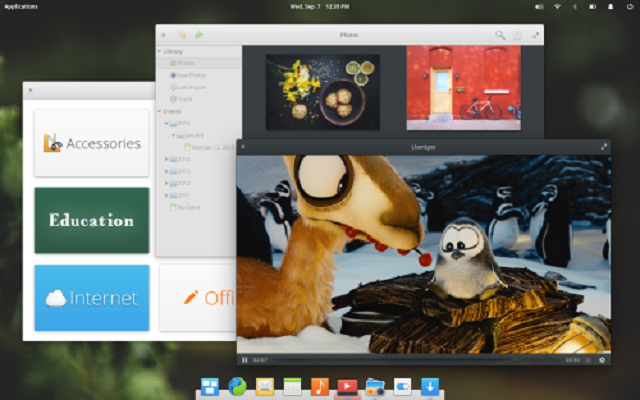
Elementary OS 0.4 'Loki' Ubuntu-based Linux distribution achieves stable release
There are too many Linux distributions nowadays. While many people feel that there is no such thing as too much choice, I respectfully disagree. Quite frankly, the Linux developer community is spread too thin, leading to wasted resources and slow movement on projects. For end users, it can be hard to find the best operating system for them, as there are far too many from which to pick.
With all of that said, there is plenty of room for some distributions -- when they make a substantial impact, that is. Elementary OS (stylized as elementary OS) isn't the most popular Linux distro, and it certainly isn't the best. However, this Ubuntu-based operating system is focusing on something that some competitors do not -- user interface, which ultimately contributes to the overall user experience. It is because of this that Elementary is so important to the Linux community -- it matters. Today, Elementary 0.4 (code-named 'Loki'), achieves stable status.

Linux Mint 18 KDE is here -- download the open source Windows 10 alternative now
Regardless of your feelings about the iPhone, you cannot deny that this week belongs to Apple. The company is certainly dominating much of the world's attention. With that said, there is certainly more going on in the technology world than a new version of a popular smartphone. Some desktop Linux users for instance, would probably be more excited about a new version of a distribution, and today, a significant OS sees release.
What is the desktop OS of which I speak? Linux Mint 18 'Sarah'. True, that distribution is not really new, but this variation is -- KDE. Yes, a new version of Mint -- featuring the Plasma desktop environment and associated apps -- is available today. Could the open source operating system be a good alternative to Windows 10?
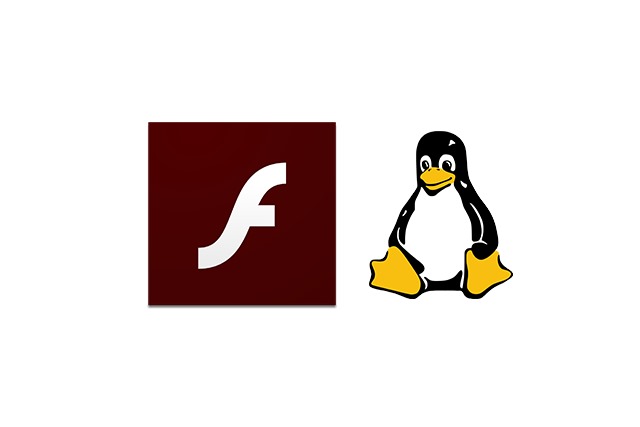
Adobe Flash Player will live on in Linux
The much loathed Flash Player -- seen these days as little more than a resource hog and security risk -- had been cut loose on Linux. Four years ago Adobe said that the NPAPI version of the Linux version of Flash Player would only receive security patches and no further updates. Now this is changing.
Despite an overwhelming drive to move away from Flash towards HTML5, Adobe has decided to resurrect it on Linux. A beta version of Linux NPAPI Flash Player is now available and will be kept in sync with the modern release branch.

Fedora 25 Alpha Linux distro now available
Fedora is one of my favorite Linux-based operating systems for multiple reasons. As a big GNOME fan, I like that the distro treats the desktop environment in a pure manner. It is also rock solid with regular updates -- including very modern versions of the Linux kernel. Plus, if you want a true "free" open source experience, it is not corrupted by closed source and other non-free packages. Of course, you can always add those types of packages through repos if you absolutely need them.
Today, Fedora 25 Alpha sees release. While the pre-release distribution is not ready for end users, it does give testers an early start at poking around.
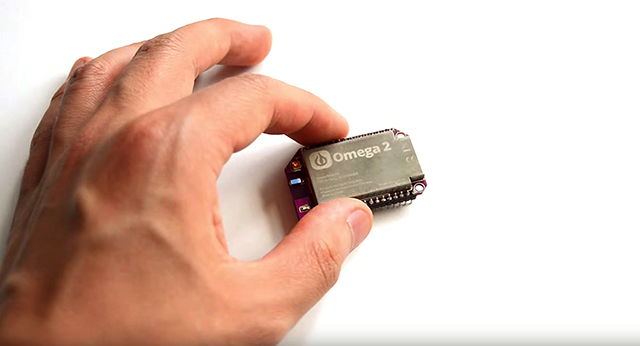
Omega2 is a $5 Raspberry Pi rival, with built-in Wi-Fi and storage
The Raspberry Pi is a fantastic low-cost computer, available in a choice of versions. The Raspberry Pi Zero is the cheapest of the bunch, priced at just $5, plus all the extra bits and pieces you need to get it up and running.
Omega2 is an identically priced Linux computer designed for building connected hardware applications, but unlike the Zero it has integrated Wi-Fi (802.11 b/g/n) and on-board flash storage. No need to add a Wi-Fi dongle or SD card.

Ubuntu Linux 16.10 (Yakkety Yak) Beta 1 now available for download (don't talk back)
Linux celebrated a 25th birthday yesterday -- a spectacular open source milestone. For some folks, rather than eat cake, they reflected on how the kernel impacted their lives. For many, Ubuntu would be a big part of the picture -- the desktop OS is wildly popular in the Linux community.
Today, the first beta of Ubuntu Linux 16.10 sees release. Once again, a silly animal name is assigned, this time being the letter "Y" for the horned mammal, "Yakkety Yak". This is obviously a play on the classic song "Yakety Yak" by The Coasters. Please be sure not to "talk back" while testing this beta operating system!
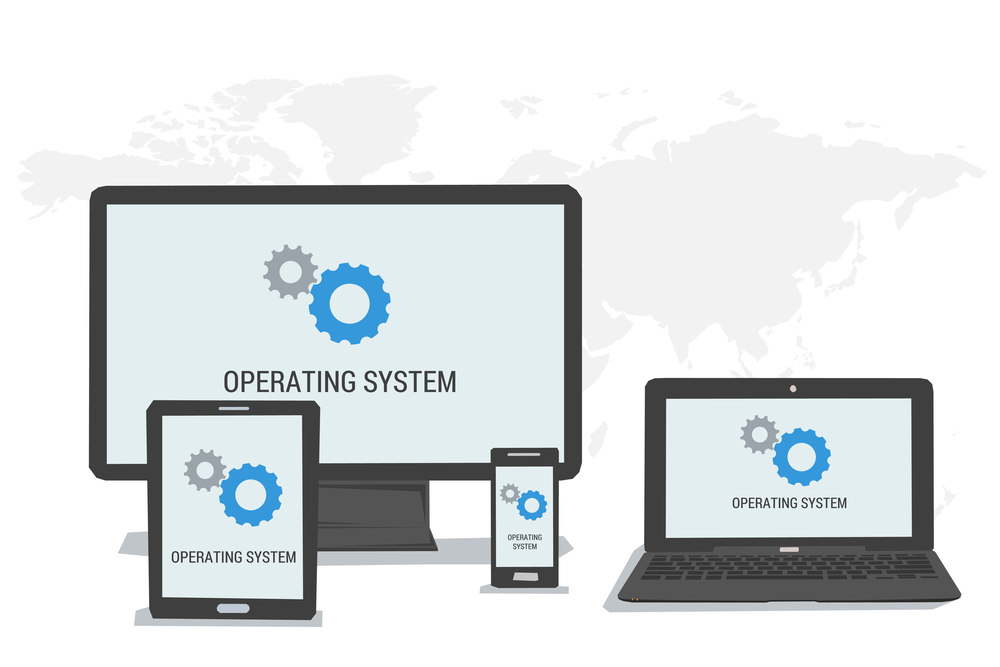
Windows, Mac or Linux... Which operating system best suits your business?
With all the options out there, organizations may be having a hard time deciding which operating system to go with. The three most common are Windows, Mac, and Linux systems. But which is the best for your business?
An OS should have a robust set of characteristics to serve the diverse needs of a busy office. It should be reliable and secure, yet flexible enough to scale with business demands. The user interfaces should be feature-rich and easy to navigate for both end-users and IT administrators. Windows remains by far the most popular, used in around 85 percent of businesses, with Mac a distant second and Linux operating systems hanging in at over 5 percent.

Linux celebrates its 25th birthday today! But can it survive another 25 years?
Today, Linux celebrates its 25th birthday. This is certainly cause for celebration in the open source community. Surprisingly, however, after all this time, many people don't understand that Linux is simply a kernel, and not an operating system. Yes, it is used as a component of operating systems, such as Ubuntu, Fedora, Android, Tizen, and more, but a kernel alone does not an OS make.
Linux's longevity is a testament to the open source community as a whole, and not just one man, such as Linus Torvalds. True, he invented the kernel back in 1991 and maintains it to this day, but if he didn't have help along the way, it would have died long ago. Speaking of death, how much time does Linux have left to live? Some folks wonder if the kernel could meet its demise at the same time Torvalds does (or shortly thereafter). In other words, does the man have too much control with no real contingency plan?

Samsung Z2 is the world's first 4G Tizen smartphone
Android and iOS are the only two mobile operating systems that matter. That's a problem for consumers. Why? Well, while duopolies at least give them some choice, being limited to just two options isn't ideal. Sure, there are other options like Ubuntu for phones and Windows 10 Mobile, but neither are lighting the world on fire.
Consumers aside, phone manufacturers don't have access to Apple's iOS, leaving Android as the only viable option. In other words, for OEMs, there is almost no choice. Samsung is apparently not satisfied with being limited to Google's mobile operating system. The company has been experimenting with devices running a different Linux-based open source mobile OS -- Tizen. Today, it launches the first ever 4G smartphone running that OS. The catch? Besides a small 4 inch screen and 5 megapixel camera, it is only available in India.

Chrome apps to disappear from Windows, Mac and Linux while Chrome OS gains new launcher icon
Google has come to the realization that hardly anyone is using Chrome apps. As such, the company plans to phase out support for the apps on Windows, Mac and Linux over the next couple of years.
While admitting that packaged apps are used by just 1 percent of users of the three platforms, Google says that the decision comes after a drive to integrate the feature of apps into web standards. Chrome apps will live on in Chrome OS "for the foreseeable future", but a wind-down timetable has been set out for everyone else.

Microsoft PowerShell now open source and available for both macOS and Linux
Microsoft has been a big proponent of open source and Linux lately. Heck, Ubuntu binaries are in Windows 10! Satya Nadella's leadership seems to be a big catalyst here. While we do not yet have top-tier software like Microsoft Office running natively on Ubuntu or RHEL (yet), the company has been putting resources behind open source projects and Linux-compatible software such as Skype.
Today, the Windows-maker cements its status as a Linux and open source champion by putting its command-line PowerShell tool and language on GitHub. This shows a strong commitment from Microsoft towards the Linux community. Is this a bad sign for Windows?
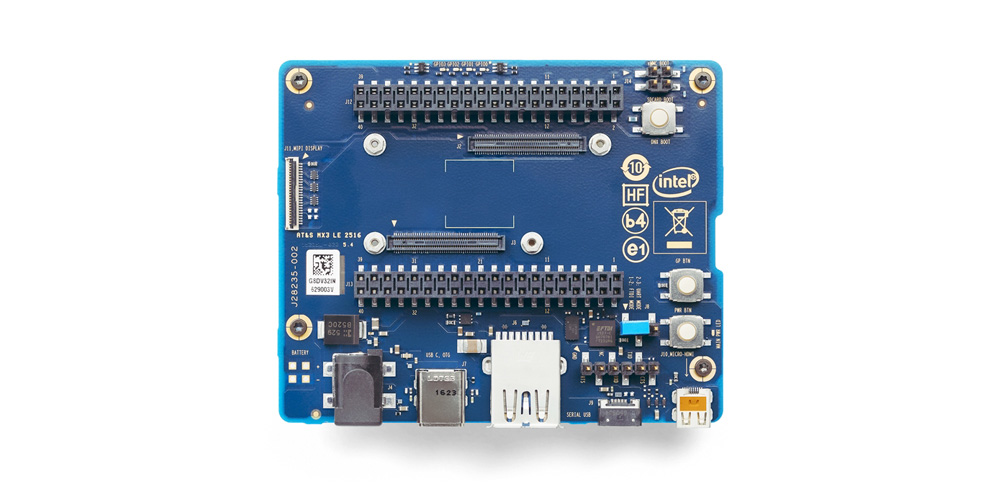
Intel Joule SOM runs Ubuntu Core Linux and makes Raspberry Pi look like garbage
The original Raspberry Pi sparked the creativity of many developers and students, but it was woefully underpowered. Through several iterations, however, it slowly became more powerful. While the most recent version -- the Raspberry Pi 3 -- has a much more capable processor, some developers will still want even more horsepower.
Today, Intel announces a maker board that puts the Raspberry Pi 3 to shame. The Joule system-on-module mini-computer features RealSense camera support and runs Ubuntu Linux Core. Best of all, its specs are very impressive for what it is.
